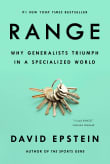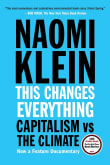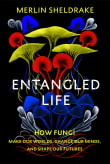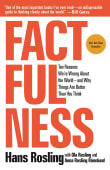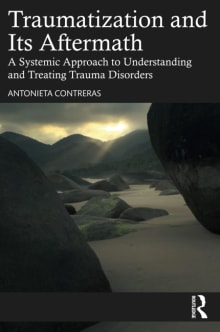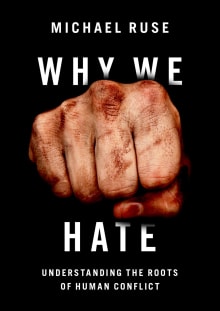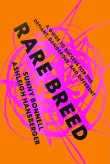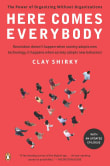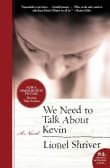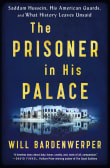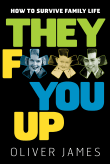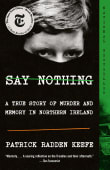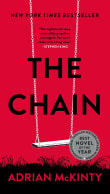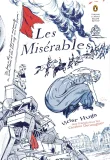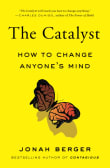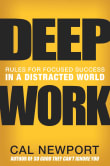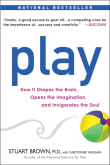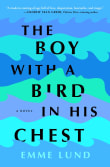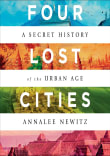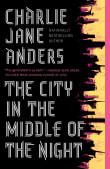Humankind
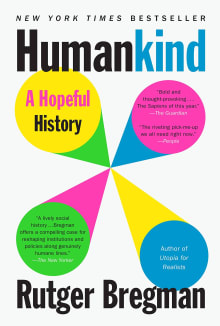
Book description
THE INTERNATIONAL BESTSELLER
A Guardian, Daily Telegraph, New Statesman and Daily Express Book of the Year
'Hugely, highly and happily recommended' Stephen Fry
'You should read Humankind. You'll learn a lot (I did) and you'll have good reason to feel better about the human race' Tim Harford
'Made me see…
Why read it?
12 authors picked Humankind as one of their favorite books. Why do they recommend it?

I was deeply captivated by Rutger Bregman’s book. In a world that often feels dark, this book was like a beam of light.
What resonated with me the most was how Bregman masterfully combines compelling stories with solid scientific research to argue that empathy and cooperation aren’t just societal constructs; they’re imprinted in our very nature.
His optimistic view of the human behavior was both surprising and reassuring at the same time. This book left me feeling hopeful not just for the present but for the future as well.
From Nada's list on deepen our understanding of the world around us.

Far too often, we hear that people are selfish and often cruel. Although that has not been my experience, I found Rutger Bregman's account of the innate kindness of human beings refreshing and persuasive.
He debunks experiments purporting to show that good people will do bad things if the situation calls for it, and he explains that the instinct to cooperate rather than compete runs deep within the human psyche. Indeed, it has been key to our survival as a species.
After I finished reading this book, I became more optimistic about our capacity to transition to a post-growth society…
From Peter's list on how to transition to a post growth society.

The best antidote to extremism, in my view, is to reject the old canard that humans are selfish and xenophobic by nature.
Bregman’s optimistic and affirming book dispels this myth with fascinating research and persuasive storytelling. Along the way, he examines deep questions like why we persist in believing the worst about ourselves and one another. Humans are wired for altruism and compassion and the more we understand that, the more difficult it is to persuade us to act against our most basic instincts.
From Dashka's list on facing down extremism, online and off.
If you love Humankind...

After his great book Utopia for Realists, which called for a Universal Basic Income, Rutger advances his brilliant and uncommonly optimistic theories with a book that demonstrates, using a lot of historical and scientific evidence, that people are fundamentally decent by nature.
According to him, the evil side of our nature is a deviation created by our modern social and political systems. It demonstrates that our current leaders are highly dependent on that deviation to continue in order to thrive. Bregman provides some fascinating insights on how some of our history has been entirely rewritten in a negative way to…
From Vincent's list on the world is getting better and the best is yet to come.

This wonderful book is the perfect ending to this list.
It is hopeful (as the title suggests) but it is also a good story about who we are as humans and what we believe about ourselves.
The big message is – we are basically good and care about others. I love that. It’s not just a feel-good text, it’s based on research, scientific evidence and a look at our history.
What we need right now to move forward in talking to our family, friends, colleagues, and fellow citizens – is hope. Enjoy!
From Linda's list on talking to people who don’t agree with us.

If you think you know all about the famous Milgram experiment, in which people gave what they thought were painful electric shocks to another person under orders from an authority figure, then you need to read Humankind.
Historian Rutger Bregman takes us on a journey through human history, re-examining events and research studies, and debunking the idea that we are selfish and self-interested.
Although this view of human nature takes a terrible toll on our economics and our politics, this hopeful book shows how much better we can be.
From Kate's list on busting common myths about our human nature.
If you love Rutger Bregman...

What happens during a crisis? Do people act to save themselves or do they help one another? Just how fragile are the bonds that hold society together?
In this unforgettable book, Rutger Bregman argues that cooperation and consideration are the default reactions of humanity. Drawing from many sources, including a real-life Lord-of-the-Flies situation, he demonstrates that human nature is hardwired for kindness and trust rather than competition and cruelty.
All you think you know about human nature might just be wrong.
From Christopher's list on unconventional stories on US national security.

I read Humankind in the summer of 2021, a year into the pandemic and at a point when I wasn’t sure what the future looked like—all I knew was that the present seemed pretty bleak. Rutger Bregman’s book provided a counterweight to my fears and weariness, revitalizing my commitment to my fellow humans. It reminded me of my personal motto, a quote from the Roman writer Terence: “I am human; no human thing is alien to me.” If we try, there’s almost no human experience we can’t find a way to relate to.
From Neil's list on healing your heart.

I always believe that people and the world are inherently kind. Rutger Bregman proves this theory true. His knack for finding small stories that have a big impact is one of a kind, and he backs these stories up with thoughtful research and additional notes. I feel like if everyone read this book, the world would have less division, and people would realize we are all on the same team fighting for what we believe is kind and good. Hence the title: Humankind. This is hands down one of my favorite books I have ever read.
From Samuel's list on reshaping your perspective through nonfiction.
If you love Humankind...

I read Bregman’s book during the height of the pandemic and it was the perfect escape from all the sadness. It’s a history book full of happy stories. Most history books are downers and are full of death and destruction, but Bregman proves that humans aren’t all that bad. Wait until you read the part about the Stanford Prison Experiments. Reading the book, I realized that you could learn so much from stories of hope and perseverance.
From Joe's list on that made me write a book about my life.
Want books like Humankind?
Our community of 12,000+ authors has personally recommended 100 books like Humankind.



